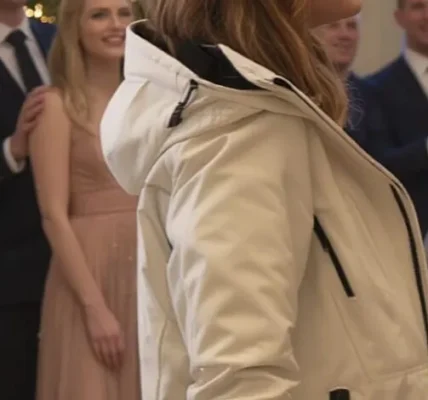A family once took me on vacation with them so I could watch their kids. It’s late at night, I’m laying on the couch and the parents got home. The dad says, “Is she sleeping?”, referring to me. He assumed I was, so he then started whispering to his wife.
And that’s when I heard something that made my stomach turn.
He said, “We can’t let her know what happened with the money.”
It was one of those moments where your brain tries to convince you that you must’ve heard it wrong. I held still, eyes closed, heart pounding. They kept whispering for a few seconds, then tiptoed into their room. I didn’t sleep a minute that night.
The dad’s name was Dario. The mom, Anika. I’d known them for about eight months. They hired me through a local babysitting app when they moved to town. Their daughters, Mina and Kalin, were sweet—ages six and four. I was twenty-three, juggling night classes and babysitting gigs, grateful for the extra income.
When they invited me to join their Florida beach trip as their “travel nanny,” I said yes without hesitation. I didn’t have a big summer lined up, and the offer was generous—full room and board, plus $800 for the week. All I had to do was help with the kids during the day so they could relax a little.
We drove down in two cars, stayed in a condo just off the beach. The place was way nicer than I expected: big kitchen, ocean view, two balconies. I had my own pull-out in the living room. During the day, I played in the pool with the girls, fed them snacks, built sandcastles. At night, I watched cartoons with them while their parents went to dinners and bars.
But that night—night four—I started realizing something didn’t feel right.
The next morning, Anika was quiet. She avoided eye contact. Dario acted normal, overly cheerful even. But I was watching now. Listening.
He was always checking his phone. Always stepping outside to “take a quick call.” I also noticed the way he guarded a black messenger bag he brought everywhere—beach, dinners, even the pool. He never let it out of sight.
I wasn’t about to accuse them of anything, but my gut told me something sketchy was going on.
Two days later, it exploded.
We were packing up to head home when two police officers showed up at the condo. Mina was brushing her teeth. Kalin was half-asleep on the couch. I opened the door, confused, toothbrush still in my hand.
They asked for Dario by full name. When I told them he was in the parking garage packing the car, one officer stayed by the door while the other went to get him.
Everything after that moved like a movie.
They arrested him right there in the hall. Anika screamed. Mina started crying. I grabbed the girls and ran them into the bedroom so they wouldn’t see their dad in handcuffs. My hands were shaking so badly I dropped one of their juice boxes on the floor.
Apparently, Dario had been under investigation for embezzling funds from his job—a mid-size import company in Atlanta. We’re talking nearly $90,000 skimmed over two years. A whistleblower tipped them off, and when they realized he was leaving town, they sent officers to intercept.
It made sense all of a sudden—the guarded bag, the frantic calls, the whisper about “money.”
I stayed in the room with the kids while everything unfolded. Anika was screaming, begging them not to arrest him in front of her daughters. But it was done. They drove him off in a squad car. The condo door slammed shut. The hallway went quiet again.
Anika collapsed on the kitchen floor. I didn’t know what to do, so I gave her space and put on a movie for the girls.
Later, when she calmed down, she told me everything.
Dario had been “working late” for months, trying to “fix” what he’d done. He told her about the theft just a week before the trip but convinced her it was almost sorted out. She believed him—or wanted to. The trip was supposed to be one last normal week before he turned himself in.
Only he never planned to turn himself in. He planned to run.
That black bag? Full of burner phones, fake IDs, and cash. I helped carry it to the car.
I sat there, stunned. Nanny to a getaway family.
We ended up staying an extra day so Anika could meet with a lawyer and make arrangements. She was humiliated, terrified, and completely lost. I honestly felt for her. She didn’t know the whole truth, but she was trapped in it anyway.
I offered to fly home with the girls and give her some time to deal with things. She agreed.
Back in Atlanta, things were strange.
News broke about the arrest. My phone lit up with texts from mutual acquaintances who saw my name tagged in a few Facebook threads. “Is this the same Anika and Dario you babysit for??” “Were you on the trip???” I didn’t respond to any of them.
Two weeks later, Anika called. She was sobbing. Dario was refusing to cooperate and might be facing real prison time. Their accounts were frozen. The house was under review. She couldn’t afford daycare anymore and didn’t know what to do.
I told her I’d help with the girls part-time, unpaid. I wasn’t rich, but I had just enough side gigs to get by, and I couldn’t stand the thought of those girls being tossed around in the chaos. They didn’t ask for any of this.
So, for about three months, I went over almost daily. Took them to the park. Helped with dinner. Kept the peace.
Then something even stranger happened.
Anika got a job. At a bakery. It didn’t pay much, but she started waking up early, walking to work, showing up home with flour still on her face and a smile that was starting to look real.
I watched her rebuild herself, crumb by crumb.
One afternoon, she asked if I could come over after bedtime. She had something to show me. I walked into the kitchen and saw a small paper bag on the table.
Inside was an envelope.
“Open it,” she said, blinking fast.
I pulled out a check. It was made out to me. For $1,200.
She said she’d been saving from every paycheck since the bakery hired her. It wasn’t what I was owed from the trip, or even close to all the unpaid babysitting hours—but it was what she could do.
“I can’t undo what he did,” she whispered. “But I want you to know not everyone in this family is like him.”
I cried. She cried. Then we laughed awkwardly while her cat tried to eat the envelope.
That moment stuck with me.
Because when everything collapsed, she could’ve disappeared. Could’ve leaned on me indefinitely. Instead, she stood up, took the punches, and figured out how to walk again.
Six months later, I went to Mina’s school play. She wore a construction hat and sang about city planning. Kalin ran up after and gave me a sticker-covered card that said, “Thank you for being my helper.”
Now, I see the girls once a month. I moved to a different city for work, but I visit when I can. Anika’s still working, but she’s thinking about taking night classes—wants to study early childhood education. She says it’s because of everything she watched me do.
I didn’t expect that. I thought I was just stepping in during a crisis. But I guess sometimes showing up quietly leaves bigger echoes than you realize.
There’s one more twist, though.
A year after the arrest, I got a letter in the mail. It had no return address, just a Georgia postmark.
Inside was another envelope, thicker this time. And a note.
“For your honesty and care. I’m sorry for what I put you through. Please don’t contact me. —D”
The envelope had $4,000 in it. All in crisp hundreds.
I stared at it for a long time. Then I called Anika.
She didn’t sound surprised. “I guess part of him is still in there,” she said softly. “But he doesn’t get to rewrite what he did. You do whatever feels right.”
I donated half to a domestic abuse support fund Anika once leaned on for counseling referrals. The rest, I used to finally fix my car, pay off a credit card, and treat myself to a solo beach weekend—same town, different condo.
This time, I brought a book, not a diaper bag.
So yeah. That vacation started as a paid babysitting gig and turned into a crash course on character, choices, and quiet courage.
I learned that people surprise you in both the worst and best ways.
That even broken trust doesn’t always mean broken people.
That stepping in, even when you don’t have all the answers, still matters.
And sometimes, life brings the most rewarding endings after the hardest chapters.
If this story moved you, share it with someone who needs a reminder that small kindnesses do ripple. And maybe like the post too—it helps more people find it

